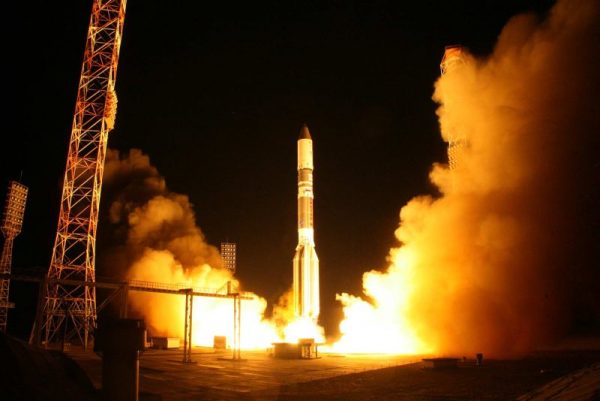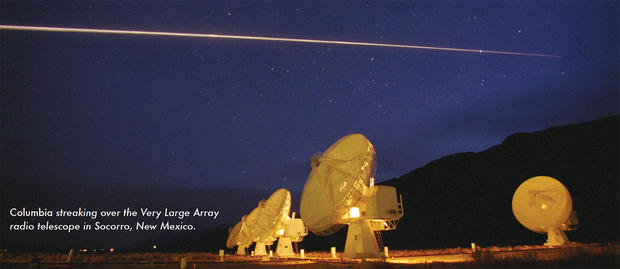Proton rocket lifts off with Russian military satellite – Spaceflight Now
EDITOR’S NOTE: Updated on Aug. 6 after confirmation of a successful mission.

A Blagovest communications spacecraft lifted off Monday aboard a Proton rocket to complete a network of four relay satellites in geostationary orbit for the Russian military.
The Proton rocket lifted off from the Baikonur Cosmodrome in Kazakhstan at 2156 GMT (5:56 p.m. EDT) Monday, according to Russia’s Tass news agency.
The Proton rocket arrived on its launch pad at Baikonur on Friday, according to Kazakh news reports, for final pre-flight preparations.
A Breeze M upper stage and the Russian military’s Blagovest No. 14L communications satellite were mounted on top of the 191-foot-tall (58-meter) Proton rocket.
Liftoff occurred at 2:56 a.m. local time at the Baikonur Cosmodrome, a sprawling spaceport in Kazakhstan under long-term lease from the Russian government. The Russian space agency did not provide a live webcast of the launch.
The launch was the third Proton flight of the year, eclipsing last year’s mark of just two Proton flights, the lowest annual launch date for Russia’s most powerful operational launcher since the 1960s.
Powered by six RD-276 first stage engines, the Proton booster fired off the launch pad at Baikonur with some 2.5 million pounds of thrust and headed toward the east-northeast. The Proton’s first stage shut down and jettisoned around two minutes after liftoff, followed by firings by the Proton rocket’s second and third stages to complete the launcher’s initial ascent into space.
The Breeze M upper stage separated from the Proton’s third stage around 10 minutes after liftoff, Tass reported.
Dmitry Rogozin, head of the Russian space agency, tweeted that the Proton rocket performed normally on Monday’s launch.
The Breeze M upper stage was programmed to kick off a series maneuvers to place the Blagovest No. 14L spacecraft into a circular geostationary orbit more than 22,000 miles (nearly 36,000 kilometers) above Earth.
The Blagovest No. 14L mission required four Breeze M engine burns, first to enter a preliminary low-altitude parking orbit, then to raise its altitude and reach an orbital inclination over the equator.
Deployment of the Blagovest No. 14L spacecraft from the Breeze M upper stage was planned more than nine hours after liftoff.
The Russian space agency said in a statement Tuesday that the Breeze M upper stage delivered the Blagovest spacecraft into the intended orbit.
Built at ISS Reshetnev’s satellite factory in Zheleznogorsk, Russia, the Blagovest No. 14L spacecraft is the fourth and final Blagovest relay platform ordered by the Russian Defense Ministry. The first Blagovest satellite, named Blagovest No. 11L, successfully launched on a Proton/Breeze M mission in August 2017, followed by Blagovest No. 12L in April 2018. The Blagovest No. 13L satellite successfully launched on a Proton rocket last December.
The Blagovest No. 14L spacecraft weighed more than 3 tons at the time of launch.
ISS Reshetnev says the Blagovest satellites provide high-speed internet, data communications, television and radio broadcasting, telephony and videoconferencing services.
The Russian military has previously said the Blagovest satellites have a dual-use mission, meaning they serve both military and civilian users.
Email the author.
Follow Stephen Clark on Twitter: @StephenClark1.






